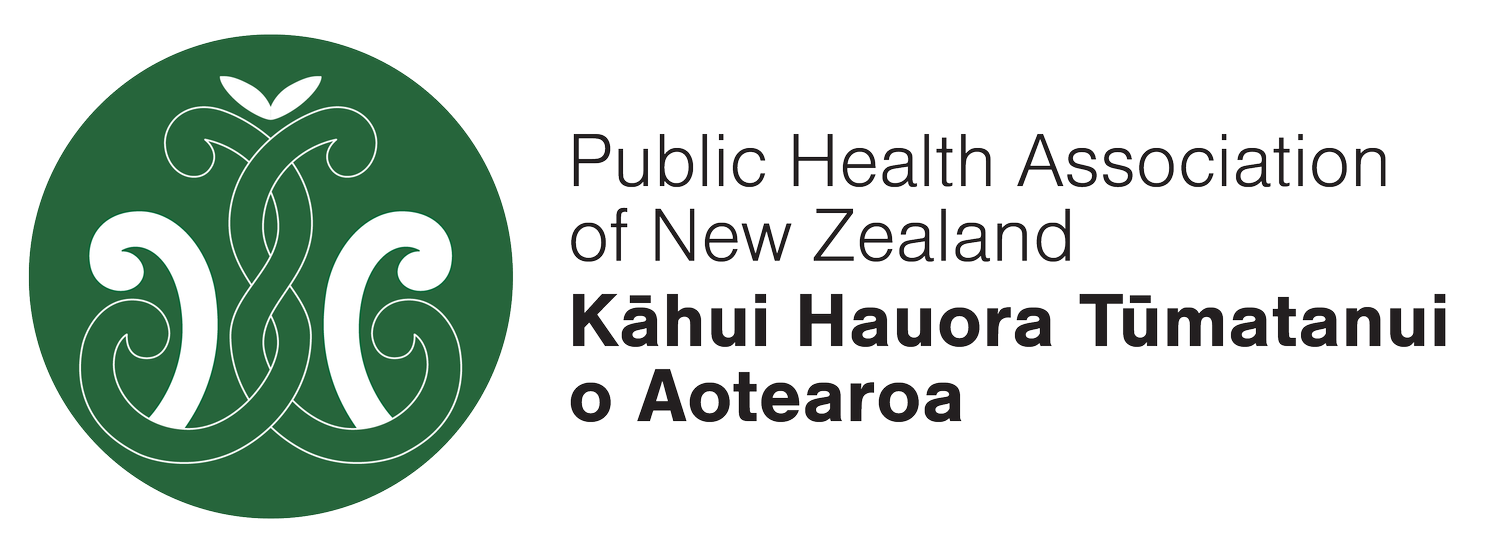PHANZ Conference 2024
Speakers and Panel Members
-

Ulugia Edward Cowley
Ulugia Edward Cowley has a career spanning close to three decades in public health. Edward has worked extensively in Pacific peoples health both locally in New Zealand and right across the Pacific region in various capacities of his work life. He has an intimate knowledge of the South Pacific region and its intricacies Ulugia Edward has worked with Pacific peoples for most of his working career and has managed to integrate his passion for training, education and sharing of knowledge to assist in creating positive change for Pacific peoples health and in turn the hauora of all whanau Aotearoa.
-

Api Poutasi
Director, Pacific Public Health, Te Whatu Ora
Api is passionate about improving outcomes for Pacific communities across Aotearoa. With his Samoan Heritage he has an informed view of the huge potential for empowerment and health gain.
His villages are Fagali’I and Solosolo in Western Samoa. Throughout his career Api has strived to embed and achieve equity for Pacific people and Māori. He believes data and evidence is pivotal to transforming our health system and understands the cultural shift that is required to achieve the collective health outcome of pae ora for all people and their aiga.
Api is the Director, Pacific Public Health, National Public Health Services, Te Whatu Ora. He has previously worked as the Head of Health at WorkSafe New Zealand and held roles at the Health Promotion Agency, Regional Public Health, Hutt Valley District Health Board and the Ministry of Health Pacific Policy.
-

Dr Andrew Old
Ministry of Health, Deputy Director General,
Public Health AgencyDr Andrew Old
MBChB, MPH (Hons), FNZMA, FAFPHM (RACP)
Andrew is a public health physician and is currently Deputy Director-General and Head of the Public Health Agency, within the New Zealand Ministry of Health. Prior to his appointment in July 2022 he held joint positions as Associate Chief Medical Officer for Waitematā District Health Board (DHB), and as Clinical Director, Health Gain for Auckland and Waitematā DHBs. From January 2020 to July 2022 he was seconded to the COVID-19 response for the Northern Region of New Zealand, mostly recently as Chief Clinical Officer. He has previously held executive roles in strategy, community participation, patient experience, and quality improvement.
Andrew was a 2018/19 Commonwealth Fund Harkness Fellow and was based between the Clinical Excellence Research Center at Stanford University, and the Social Interventions Research Evaluation Network at UC San Francisco where he researched organisational attributes of primary care practices that achieved good outcomes for traditionally underserved populations.
Andrew received his medical and public health degrees from the University of Auckland and is a Fellow of the Australasian Faculty of Public Health Medicine.
He was awarded Fellowship of the New Zealand Medical Association in 2011 for services to the profession and the public.
-
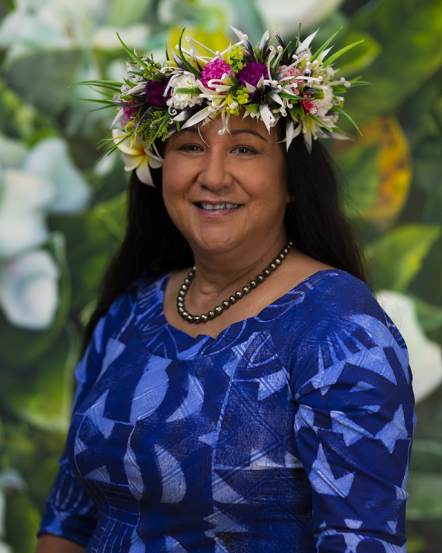
Dr Aumea Herman
Dr Josephine Aumea Herman is a public health physician and general practitioner who holds a PhD in Epidemiology from the University of Auckland.
She is a past recipient of the Pasifika Medical Association Service Award for her contribution to Pacific Health. She was a Medical Officer of Health with Auckland Regional Public Health Service from 2017 to 2018, where she helped lead the response to the wider regions mumps outbreak. She was appointed as the Secretary (Director General) of Health for the Cook Islands Ministry of Health in June 2018 and helped lead the national emergency health response to COVID-19. Dr Herman was appointed Director of Pacific Health at Waitematā DHB in 2021.
-

Ben Youdan
Director, Action for Smokefree (ASH) 2025
Ben Youdan started his career running the UK’s No Smoking Day Campaign in the early 2000’s where he also set up the smoking cessation services for the UK armed forces, and worked on the campaign for smokefree workplaces. He moved to Aotearoa New Zealand in 2006 to take on the role of ASH Director. He worked on the campaign for the Smokefree 2025 goal, and the policy steps to accompany it. In 2013 he took time out of tobacco control to work as the election campaign director for the New Zealand Green Party, and then for a Pasifika PHO setting up a community led social change project in South Auckland. After working with these communities where vaping was disrupting generations of smoking, he returned to ASH with a particular interest in harm reduction as a tool to reduce inequity, and achieve Aotearoa New Zealand’s smokefree 2025 goal. He currently splits his time between ASH, and as policy adviser to the New Zealand Heart Foundation.
-

Prof. Boyd Swinburn
Professor, Medical Epidemiology & Biostatistics, University of Auckland
Boyd Swinburn is Professor of Population Nutrition and Global Health at the University of Auckland, New Zealand and Honorary Professor, Global Centre (GLOBE), Deakin University, Australia.
Boyd trained as an endocrinologist and has conducted research in metabolic, clinical and public health aspects of obesity. His major research interests centre on community and policy actions to prevent childhood and adolescent obesity, and reduce, what he has coined, ‘obesogenic’ environments. He leads the INFORMAS initiative (www.informas.org) to monitor and benchmark food environments in over 60 countries. He established WHO’s first Collaborating Centre on Obesity Prevention at Deakin University in 2003, led two Lancet Series on Obesity in 2011 and 2015, was co-chair of World Obesity Policy & Prevention section 2009-2019 and co-chair of the Lancet Commission on Obesity 2015-2019. He has been an advisor on many government committees, WHO Consultations, and large scientific studies internationally.
-

Sir Collin Tukuitonga
Sir Collin Tukuitonga is a Niuean Public Health Medicine Specialist currently Associate Dean Pacific at the University of Auckland Faculty of Medical and Health Sciences, Co-director for the University of Auckland Research Centre for Pacific and Global Health (Te Poutoko Ora a Kiwa) and Associate Professor of Public Health. Collin is a career public servant with extensive experience in NZ, the Pacific and internationally.
-

Dr Corina Grey
Deputy Secretary, Data & Insights -
Ministry of Pacific PeoplesDr Corina Grey is a public health physician, epidemiologist and Pacific health researcher. She currently leads the Data & Insights Directorate at the Ministry for Pacific Peoples.
-

Dr Elizabeth (Liz) Mati
General Manager, Le Va Pasifika
Elizabeth Mati joined the Le Va team in January 2019 as the Senior Manager for Violence Prevention and moved into the General Manager role in 2022. She is a registered Clinical Psychologist and sits on the National Pasifikology Executive.
Prior to Le Va, Elizabeth worked in Pasifika Child and Adolescent Mental Health at CMDHB in frontline and management positions. She has been a psychologist for over a decade and has nearly twenty years' experience supporting Pasifika people in educational, mental health, forensic and community settings. Elizabeth possesses a strong interest in the design and development of impactful solutions for Pasifika.
Le Va is a Pasifika NGO that specialises in primary prevention and workforce development. It provides clinically safe, evidence-informed, and co-designed resources, tools, information, training, workshops, and support services. Le Va adopts a holistic approach to wellbeing, which includes physical, mental, emotional, spiritual, cultural, and environmental components. Its portfolio spans various social sectors such as mental health, addiction, public health, suicide prevention, disability, youth wellbeing, and violence prevention. Le Va's evidence-based work is co-created with individuals who have lived experience, Pasifika cultural knowledge holders, and expert thought leaders both nationally and internationally.
-

Emma Rawson-Te Patu
A director of ManuKahu Associates Limited, Indigenous Consultancy based in Aotearoa, Emma is of Ngāti Ranginui, Ngai te Rangi, Raukawa and Ngāti Hauā.
Emma is currently President-Elect of the World Federation of Public Health Associations, the first Indigenous woman to hold this role. Emma is a founding member of the Indigenous Working Group (WFPHA) and holds the Policy Portfolio of that group. She is a Researcher/Trainer and experienced facilitator and proud health promoter.
Emma has a Master of Philosophy with Honors (First Class). Emma currently consults to the New Zealand Human Rights Commission and other organisations nationally. A main focus of her work is Tiriti Alignment, and developing training and frameworks for dismantling institutional racism, developing culturally responsive public health approaches and socially/culturally conscious business strategy and organisational development based on Indigenous knowledge.
Emma is developing a global framework for transformational public health founded on Indigenous knowledges, values, and Human Rights. She lives in Auckland with her husband, Adrian and their Maltese Shitzu ‘TT’.
-
Dr Gary Jackson
Director of Population Health Gain, Te Whatu Ora
Gary is a public health medicine specialist leading a small team of public health clinicians and analysts within Te Whatu Ora. He has worked in the health sector for over 30 years including internationally in public health, planning, and health intelligence leaderships roles. Recent work included being an editor for New Zealand Health Status Report 2023, Te Whatu Ora’s first review of the current health of all New Zealanders.
-

Hayden Wano
Chairman - Te Hiringa Mahara
(Mental Health and Wellbeing Commission)Hayden is of Te Atiawa, Taranaki, and Ngāti Awa descent and has over 30 years experience in senior health management. He is the former CEO of Tui Ora Limited, a position he held for 25 years and was Chair of the Initial Mental Health and Wellbeing Commission. Hayden has over 40 years health sector experience in mental health, community and medical services, and was the former Director of Clinical Services at Taranaki Healthcare Limited.
Hayden has held a wide range of governance positions, including Interim Chair of the National Health Board, Chair of the former Taranaki District Health Board, and Chair of the Health Sponsorship Council. He is a former Director of TSB and recently retired as Chair of TSB Community Trust and Chair of TSB Group Ltd. Hayden is currently a Board member of both the Taranaki Chamber of Commerce and Wise Group.
Hayden holds a Master of Business Administration from Massey University and participated in a Senior Executive Programme at Columbia University. In 2017, he received the Taranaki Mayoral Award for Business Excellence. He is a Fellow of the Australasian College of Health Service Management (ACHSM) and a chartered member of the Institute of Directors.
-
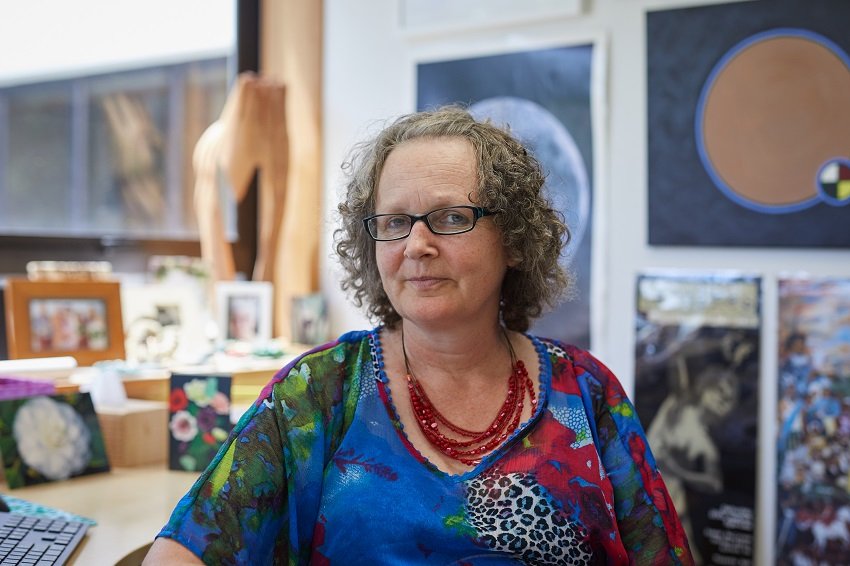
Dr Heather Came MNZM
NZ Order of Merit -
Services to Māori, Education and HealthDr Heather Came is a seventh generation Pākehā New Zealander (tangata Tiriti) who grew up on Ngātiwai land. She has worked for 30 years in health promotion and/or public health and has a long involvement in social justice activism. Heather is a founding member and co-chair of STIR: Stop Institutional Racism, and affiliated to Tāmaki Tiriti Workers.
She embraces life as an activist scholar and in 2023 set up Heather Came & Associates a consultancy specialising in pursuing racial justice. She has prepared expert evidence for the WAI 2575 health kaupapa Waitangi Tribunal claims and has led shadow reports to United Nations human rights committees around institutional racism. She is co-convenor of Te Tiriti based futures + Antiracism - a series of open-access virtual conferences.
As a scholar she has published over 60 peer reviewed journal articles and has an H-index of 22 with 1590 citations of her work. She has published in journals such as Social Science and Medicine, Ethnicity and Health and Critical Public Health. She is a regular contributor to the NZ Medical Journal. She is currently a co-Principal Investigator on a prestigious Marden grant focused on re-imaging anti-racism theory for the health sector. Her research focuses on critical policy analysis, Te Tiriti o Waitangi, anti-racism and institutional racism.
Heather is an experienced Te Tiriti and antiracism trainer. She previously worked at Auckland University of Technology for eleven years where she won a Vice Chancellor’s Teaching Excellence Award. In 2021 she was joint winner of Kāhui Hauora Tūmatanui Public Health Champion Award for her lifetime contribution to public health.
In 2022 Heather was made a Member of the New Zealand Order of Merit for her services to Māori, education and health.
-

Jacinta Fa'alili-Fidow
Ngā Kaihautū Promotion Directorate - National Public Health Service, Te Whatu Ora
Jacinta has extensive leadership and management experience in health research, public health and Pacific wellbeing in New Zealand. Her work aims to bridge government, academia and Pacific communities to champion authentic positive change for Pacific. As the founding Managing Director and now Director Strategy of Moana Connect, Jacinta empowers the importance of Pacific world-views, and the prominence of self-determination in all Moana Connect work, including evaluation, research and advocacy.
Jacinta’s past roles have been with a Pacific health provider WestFono, as Manager Pacific Health Research with the Health Research Council and Senior Advisor for the Public Health Group in the Ministry of Health. After the Ministry of Health, Jacinta was shoulder tapped to manage TAHA Pacific Maternal and Child Health Service at the University of Auckland.
Having completed her Master of Public Health (Honours), Jacinta has recently submitted her PhD with the Centre for Longitudinal Studies – Growing Up in New Zealand Study, investigating the concept of Resilience among Pacific children and families.
-

Jacqui Harema
Jacqui joined Hāpai Te Hauora in February this year and has accumulated over 20 years of experience in indigenous service, strategy and innovation, family-centred design, and implementing integrating outcome frameworks.
Being part of the team at Te Whānau o Waipareira and Whānau Ora Commissioning Agency has seen Jacqui develop skills across multiple sectors including communications, public health social services, covid response, impact measurement and many others. She brings all these skills with her to Hāpai.
-

Jason Alexander
Chief Operations Officer,
Hāpai te Hauora / Māori Public HealthStrategically minded leader in māori public health with a background in technology. History of working in the health sector as well as the technology sector, skilled at finding solutions to complex problems. Governance experience, in the disability/non-profit space as well as in education.
-

Kathrine Clarke
Kathrine Clarke is the Director, Health Promotion for Te Whatu Ora. Kathrine is passionate about working in health promotion and her interest is in supporting local communities to develop strategies and initiatives that support their communities to thrive.
Kathrine’s current role will ensure the successful design, delivery and evaluation of Aotearoa New Zealand specific health promotion functions and services across Te Whatu Ora This role will work in partnership with the NPHS Directors and will support and guide relevant functions within Te Whatu Ora, including Commissioning and Pacific Health.
Kathrine previously held the position of National Principal Advisor Public Health, Te Aka Whai Ora, supporting the implementation of the system wide public health system, ensuring Māori leadership across public health and supporting the development of the Public Health Agency and National Public Health Service from a Te Tiriti o Waitangi and Equity perspective. Prior to this she was the Chief Advisor Strategy at Te Hiringa Hauora; General Manager/Director, Manea Footprints of Kupe Ltd managing the development of a new tourism experiences based in the Hokianga; Acute Demand Services Project Manager, Northland DHB; self-employed consulting with Māori providers; and CEO of Hapai te Hauora Tapui Ltd, a Māori Health Provider in the wider metropolitan Auckland region. Kathrine has also held roles as National Manager, Māori SUDI Programme based at the Auckland University and worked for the Ministry of Health.
Kathrine will work in close partnership and collaboration with the Te Aka Whai Ora and with the Public Health Agency.
-

Kevin Hague
Kevin’s involvement with public health extends back to the 1980s, when he worked for the NZ AIDS Foundation.
He has taken many roles in the health sector, including being a previous CEO of the Foundation and of the West Coast DHB, and Chair of the Public Health Advisory Committee, a role which he again holds.
His other current roles are Deputy-Chair of Te Hiringa Mahara, and Chair of both the West Coast PHO and Takiwā Poutini.
-
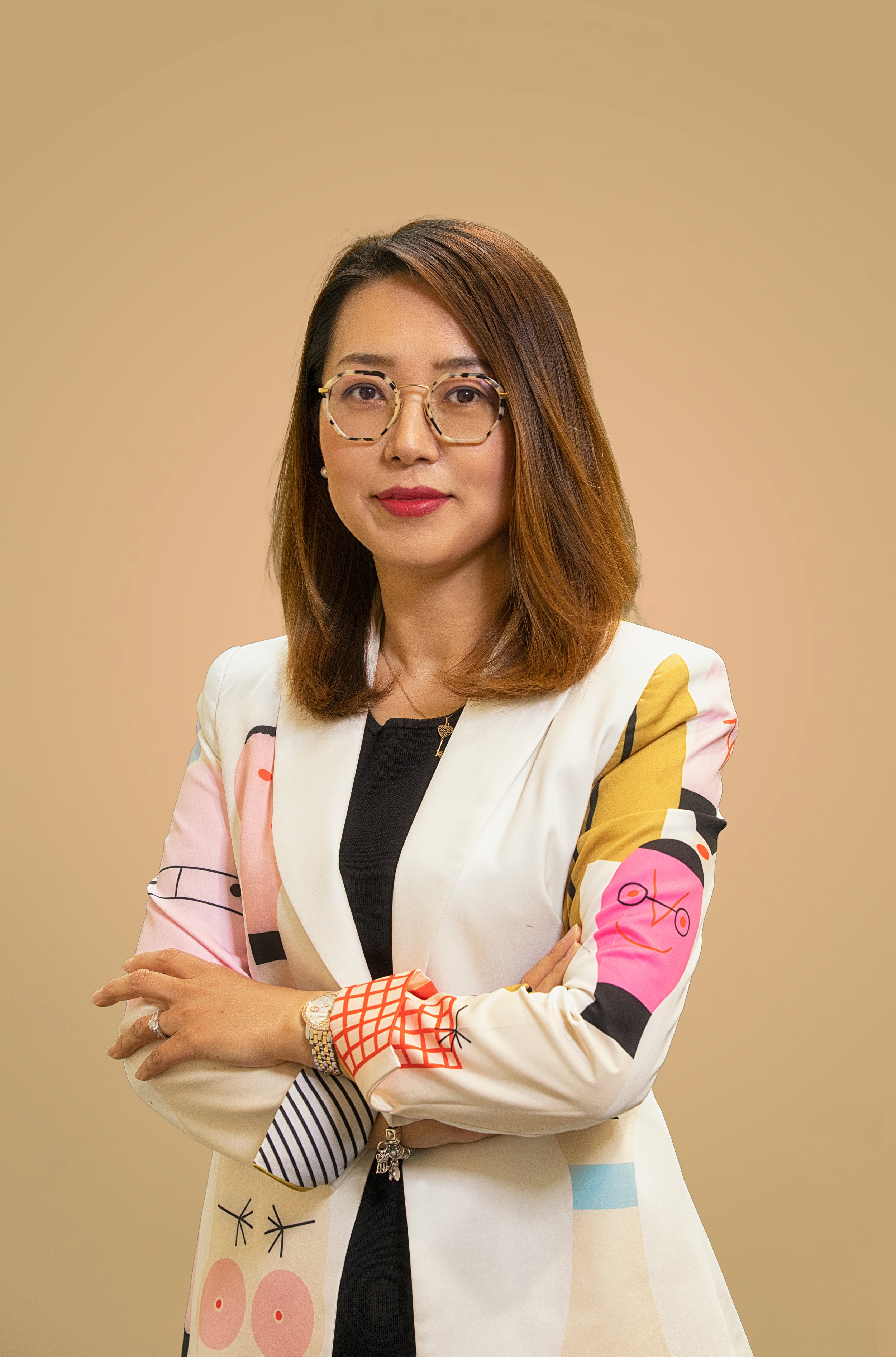
Kelly Feng MNZM
Kelly is the Chief Executive of Asian Family Services, leading an organisation that provides a range of nationwide health and social services to the Asian community in New Zealand. After becoming a qualified medical doctor in China, she migrated to New Zealand in 2002 and for over a decade has made significant contributions to the mental health and addiction sector and social sector. Kelly's background as a medical doctor in China and her subsequent registration as a social worker in New Zealand has given her a unique perspective and set of skills that she has utilised to great effect in her work. Her experience in mental health and addiction, as well as her commitment to serving the Asian community, has been the driving force behind her successful career. Kelly's work in setting up the Asian Wellbeing Services social enterprise model has been particularly noteworthy, as it has helped to fill an important gap in culturally and linguistically appropriate psychological services for Asians living in New Zealand. Additionally, her leadership in numerous Asian-focused research projects has helped to raise awareness and understanding of the mental health needs of the Asian community. Kelly's successful pilot of Asian Mental Health Services for Waitemata District Health Board in 2007 was another important achievement, highlighting her ability to create innovative solutions to address complex health issues. Her passion for the Asian community has been recognised when she was recently made a Member of the New Zealand Order of Merit for services to health and Asian communities.
-

Prof. Leonie Pihama
Associate Professor, University of Auckland
Leonie Pihama is a mother of six and a grandmother of six. Leonie is Research Director at Tū Tama Wahine o Taranaki, and Director of Māori and Indigenous Analysis Ltd, a Kaupapa Māori research company. She has worked at a range of Professorial roles at the University of Auckland and Waikato, including as Research Director of The International Research Institute for Māori and Indigenous Education (IRI) and Te Kotahi Research Institute. Leonie is a leading kaupapa Māori educator and researcher. She has been working in the intersecting fields of education, health, whānau wellbeing and Māori immersion education for a number of decades.
-

Manuariki (Riki) Nofo’akifolau
Manuariki (Riki) Nofo’akifolau is a proud daughter of Oceania of Tongan (Holopeka, Koulo, Ha’asini) and Fijian (Lau, Lakeba) descent. She is currently serving as the General Manager at the Village Collective supporting a team of Youthworkers, Health Promoters and Youth Activators who deliver health and well-being initiatives for Pasifika young people and their families.
Village Collective (VC) consists three fales or work streams:
Talavou Fale: deliver culturally responsive Relationships & Sexuality Education (RSE) in school and community settings.
Rainbow Fale: Tailored engagements for Pasifika Rainbow Youth and their families through Mafutaga and Diversity Groups in schools.
Community Fale: Authentic partnerships with like minded community groups or organisations that are committed to the cause.
A proud accomplishment for Village Collective’s Pasifika young people was having them co-design & launch the first youth-lead YOSS (Youth One Stop Shop) Clinic and safe community space in Auckland for Pasifika youth, dedicated to Pasifika young people from all walks of life.
-

Markerita Poutasi
National Director, Pacific Health, Te Whatu Ora
Markerita currently serves as the National Director of Pacific Health at Health New Zealand. In this role, Markerita also spearheads system-wide transformations as the Senior Responsible Officer for Diabetes, with the goal of fostering equity in diabetes outcomes and mitigating diabetes risks through community-driven initiatives.
Prior to her tenure at Te Whatu Ora, Markerita held the position of Chief of Strategy at Te Toka Tumai in Auckland. Her primary focus was on restructuring health systems to embody the principles of Te Tiriti, emphasising action and equity. She led the Performance Improvement team and played a pivotal role in implementing innovative equity strategies within planned care delivery in the Auckland region.
Markerita Poutasi's extensive experience also includes serving as the Director of Pacific Health for the Northern Region Health Coordination Centre. In this capacity, she orchestrated a regional response to Pacific health needs spanning from Northland to Counties Manukau, particularly during the COVID-19 pandemic. She collaborated closely with the Pacific Provider Collective to develop a regional commissioning framework aimed at delivering adaptable models of care. With a background in law and Pacific development, Markerita is recognised as a leading authority in fostering partnerships and community engagement.
-
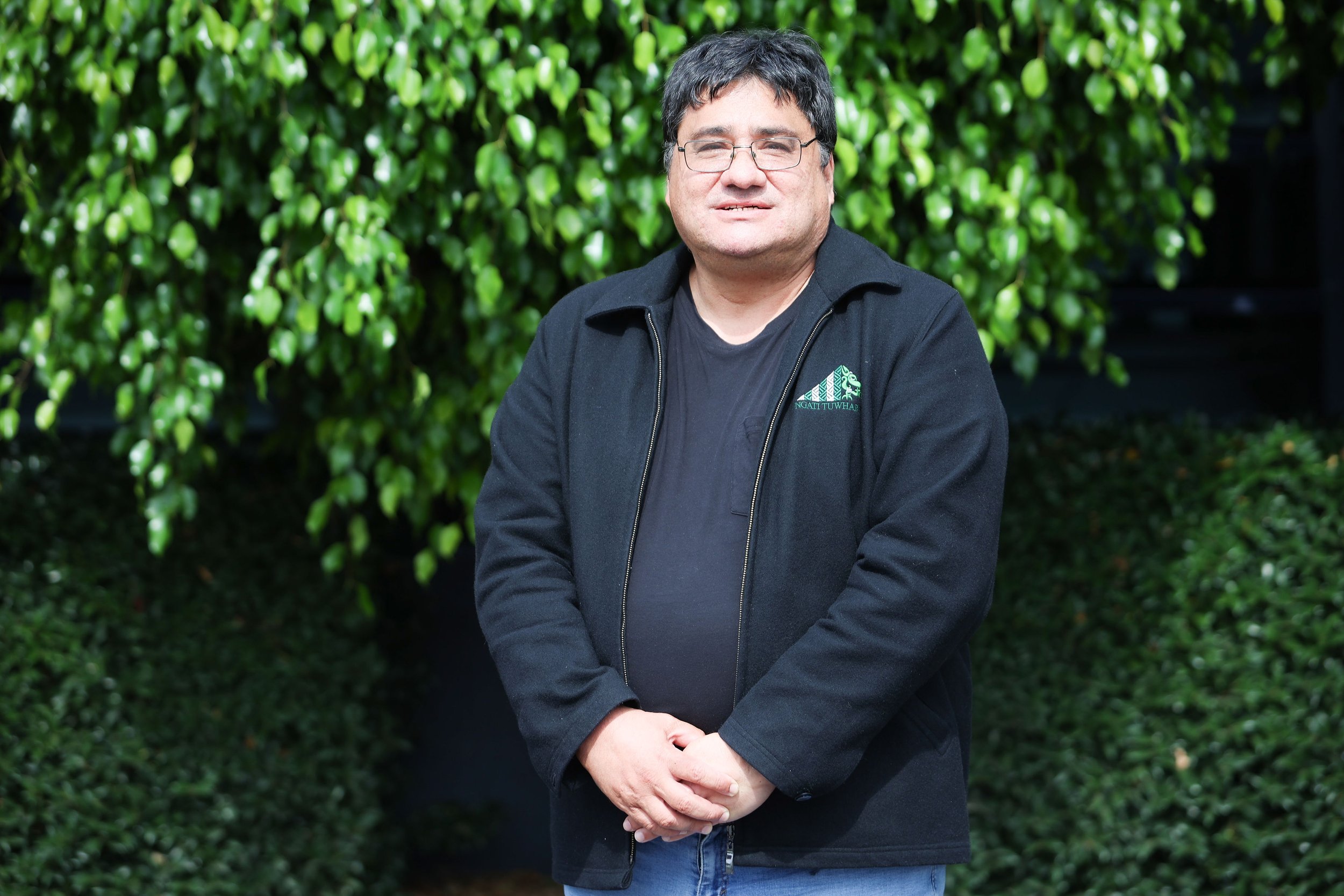
Dr Marcus Tamaira, Council Member (Māori)
Marcus is currently studying a Master of Public Health degree at Massey University, with a research focus of being tāne ora - the mana and mauri of the sons of Tāne Mahuta.
Marcus works as a Māori research officer for HART (the Health and Aging Research Team), which is part of the Massey School of Psychology, engaging in kōrero with kaumatua across the motu. His previous career was a farm veterinarian where he practiced across the North Island for 20 years.
Marcus likes tackling wicked problems, including racism and health inequities, as well as strategy and innovation. He loves the public health and hauora Māori spaces and finds the people and mahi inspiring. With the PHANZ whānau he hopes to help make a dent in the pressing social and health problems that persist in Aotearoa.
Marcus has two beautiful tamariki, Tom who is studying engineering, and Emma who is in her final years of high school. His main passion is music, and he plays guitar in a cover band called “Yardigans” – world famous in Whanganui!
-

Mapihi Raharuhi
As an impact strategist, Mapihi brings her experience navigating political contexts in Māori and government systems and structures that activate senior leadership; stimulating relationships and networks to participate in positive change. Her ability to strategically influence decision-makers, executives and leaders to align their mindsets and objectives with the values of Māori whānau, hapū, and the wider community has been honed over her professional career. She has specialist skills in tactfully investing resources that promote transformational change in whānau and communities while leading a workforce that is inspired and motivated to produce results in highly bureaucratic environments. She prides herself in applying Mātauranga Māori in aspects of engagement, keeping people at the centre of engagement, implementation, and risk.
She currently holds a national role of Kaiarahi Matua – System Innovation Lead in Te Aka Whakahiko Te Aka Whai Ora. Previously she held the position of Director – Equity Outcomes for Te Aka Whai Ora, Lakes. Leading a team of nine to develop and implement the Lakes Equity Plan to achieve better outcomes for Māori Health.
She is also a principal Director at Ignar Consultants leading and facilitating projects that apply Mātauranga as tools to achieve better outcomes for Māori and the wider community.
She applies a return to Māori systems approach in the innovation space whilst also introducing Mātauranga approaches in transforming current systems in health.
-

Marty Rogers
Marty Rogers (He uri o ngā iwi o Muriwhenua)
Senior Māori Researcher and Evaluator
Marty has over 30 years of experience in health planning and funding, workforce planning and programme development, and co-design with marginalised communities in partnership with crown agencies and private businesses. Litmus has worked with Marty since 2020 in health and housing projects.
Marty is from and based in Te Tai Tokerau. In her previous roles, Marty contributed significantly to Māori outcomes in Te Tai Tokerau and Tamaki Makaurau. She has extensive community relationships in Tai Tokerau and throughout Aotearoa.
Marty has a Bachelor of Arts in Applied Management and PG Cert in Clinical Teaching.
-
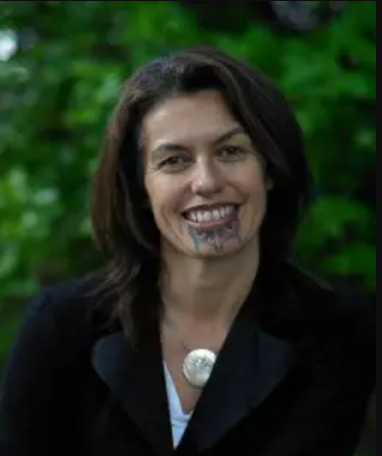
Prof. Mera Penehira
Ngāti Raukawa ki Otaki; Rangitaane
Mera began her academic career as a kindergarten teacher in the late 1980’s, and graduated from Taranaki Polytechnic (Bell Street era!) with Te Tohu Mōhiotanga in the early 90’s. Mera completed her masters in educational psychology at the University of Auckland. Her doctoral research centred on Maori women’s health and traditional healing practices, in particular moko, traditional Māori skin carving. Mera was the recipient of a NZ Health Research Council post-doctoral fellowship, this research explored Māori views of sexual and reproductive health in the context of ‘mouri whakapapa’. Mera is now the Head of the School Indigenous Graduate Studies at Te Whare Wānanga o Awanuiārangi where she also leads the International Indigenous Doctoral Programme. She teaches and supervises Indigenous and Native doctoral candidates in Aotearoa (Waikato- Tainui College for Research and Development), the Big Island of Hawai’I, and Washington State (University of Washington Tacoma). Mera has a 19-year-old daughter and is an immediate past board member of Te Kura Kaupapa Maori o Hoani Waititi Marae in West Auckland where she also resides. Mera is a founding member of Te Wharepora Hou, a Māori and Pacific women’s organisation committed to political actions that support Māori and Indigenous women, children and whānau to achieve and maintain rangatiratanga. Mera is also a member of Māori immersion education boards including Te Runanga o Te Pou Tiringa and a founding member of Te Kōpae Piripono.
-

Prof. Michael Baker
Professor, Department of Public Health,
Otago UniversityDr Michael is a public health physician and Professor in the Department of Public Health, University of Otago, Wellington. He has a wide range of public health research interests, with a focus on prevention and control of infectious diseases, advancing environmental health, and improving housing conditions.
He took a leading role in shaping New Zealand’s Covid-19 pandemic response, particularly the elimination strategy. Michael hopes that we can learn from the pandemic response about the benefits of clear strategic leadership and prosocial policy making.
He has a strong interest in science communication and directs the newly launched Public Health Communications Centre Aotearoa which just celebrated its first year of operation.
Michael is interested in how public health can frame and articulate a highly appealing vision for a society where health, equity, and environmental sustainability are recognised as providing the basis for prosperity. And where scientific evidence and indigenous knowledge inform that future-focussed direction
-

Nari Faiers
Nari is a Māmā of two and has two mokopuna. Currently Nari is working for Te Aka Whaiora as a Senior Advisor. For the last 6 years she led the workforce development for the National SUDI Prevention Coordination Service at Hāpai Te Hauora. She currently holds the role of Co-President of the Public Health Association NZ; she is a steering group member for Power to Protect supporting Māori-led approaches to their work programme and she is also an advisory member of the Coronial Child & Youth Mortality Review Group for Waitematā. Nari has experience in the field of Māori development and research working as a specialist in the Māori Growth Programme at Auckland Tourism Events and Economic Development and in advancement at AUT University. Her Master’s degree focussed on tribal governance in sacred spaces and she’s currently enrolled in a doctoral programme with Te Wānanga o Awanuiārangi, exploring Indigenous frameworks of resilience as a response to crises. Nari has worked across many sectors and communities (primarily working with wāhine) that include the Cervical Screening Programme and Women’s Refuge. Her mother was a Public Health Nurse, Community Leader and Teacher and a huge influencer in Nari’s life and ambitions. It was not surprising, that she returned to the health sector and aspires to add value through resource development and health promotion for whānau, hapū and iwi.
-

Dr Nick Chamberlain
National Director, National Public Health Service,
Te Whatu OraDr Nick Chamberlain is the National Director, National Public Health Service, responsible for operational planning and delivery of public health promotion, prevention, intelligence and health protection services. He has a particular focus on broadening the reach of public and population health through our work with Iwi, Māori and Pacific providers into all our communities.
Prior to his current role, Nick was Northland DHB Chief Executive for nearly 12 years. He has specialist qualifications in Medical Administration and General Practice. He has held DHB lead Chief Executive roles in Primary Care and Public Health, held GM roles in Planning and Funding and Hospital Services and spent 11 years in his own general practice.
-

Riana Manuel
Riana Manuel is Te Aka Matua (Chief Executive) of Te Aka Whai Ora, Māori Health Authority. Riana is a skilled strategic, and visionary leader within the health sector, with extensive experience leading kaupapa Māori organisations. Riana is a registered nurse practitioner, who has based her career in community and Māori healthcare.
Prior to her appointment as Chief Executive for Te Aka Whai Ora, Māori Health Authority, Riana was Nurse Director at Waikato District Health Board, Chief Executive of Hauraki Primary Health Organisation a rural iwi-based health provider, Te Korowai Hauora o Hauraki. Riana’s aim has always been to ensure people in both rural and urban areas have services appropriate to their communities, rather than applying a universal approach to healthcare. She is passionate about improving the health outcomes for Māori and for all people.
-

Patrick Salmon
Relationship Manager, Māori Health Services, ACC
& PHANZ Council MemberPatrick Salmon is an advocate and public voice for ways to share and uphold the well-being of Māori in modern-day society. He uses his creative skills and innovative thinking to develop solutions that support the oranga aspirations of a person's life journey.
Patrick has a Master's degree in Applied Indigenous knowledge from Te Wānanga o Aotearoa, a Bachelor of Business Administration from the University of Waikato, a certificate in Māori Performing Arts from Te Wānanga o Aotearoa, years of experience and support in the governance space for tribal and mainstream entities along with a multitude of different community groups that support the wellbeing of Māori.
While at Te Wānanga o Aotearoa, Patrick worked on bringing ancestral knowledge to people with the support of different technologies, a traditional taonga to help Māori wāhine empower themselves to tackle harmful habits and stay smoke-free while pregnant. He looked at how to enable wooden heru combs to interact with a smartphone app, triggering an augmented reality experience that incorporated traditional wisdom about the protective power of the heru to tackle personal challenges and unleash potential.
Patrick has a background in social services and felt new ideas were needed to change the way Māori are experiencing the health sector. He looked at the traditional wearing of heru as a protective practice to support mental and spiritual health and a fun way of connecting to Te Ao Māori.
Patrick is the founder and managing director of Kairua, an online movement dedicated to creating positive change within communities across Aotearoa and the globe through his Indigenous Innovation work. Patrick has accumulated an online community of over 100k innovators and creators who tune in, interact and share content daily across multiple social media platforms.
Patrick has been an advocate for creating public discussions on gender and moko[ab1] tattoos. He believes tā moko is our cultural alphabet and is used to write and reflect each individual's personal journey. Patrick's work supports and challenges ideas of how to create a new normal by maintaining traditions and allowing for the growth of expression.
-

Rachel Karalus
CEO, K'aute Pasifika
Leaupepe Rachel Karalus is the chief executive of K’aute Pasifika Trust. K’aute Pasifika Trust is a charitable trust providing health, social, education and other wellbeing services to people from all backgrounds using Pacific models of care.
Rachel is of Samoan descent with aiga connecting to Fasito’outa, Safotu, Luatuanu’u and Salelologa.
Rachel’s background is in law having practiced as a litigation lawyer for a number of years in Auckland, Wellington and in the Waikato Region. Rachel is a director of Habitat for Humanity Central and First Credit Union.
-

Prof. Richard Edwards
Professor, Public Health, University of Otago
Richard trained as a public health physician in the UK. He is a Professor of Public Health at the University of Otago, Wellington and co-director of ASPIRE Aotearoa Research Centre. His main research interests are in tobacco use epidemiology, tobacco endgames, and tobacco control policy. He focuses particularly on research to help achieve the Tupeka Kore vision of ending significant tobacco use in Aotearoa/New Zealand by 2025. He is co-principal investigator on the New Zealand arm of the International Tobacco Control (ITC) Evaluation project and co-director of the Whakahā o te pā harakeke research programme.
-

Riki Nia Nia
Riki has over two decades of dedicated service to executive leadership roles within the health sector and has established himself as a transformative force in the New Zealand health care landscape. His commitment to improving the health and well-being of whānau has been unwavering and the cornerstone of his career. Further to the work he has led in District Health Boards throughout Aotearoa, Riki has recently been appointed as the Chief Executive Officer of Te Rau Ora. An organisation established by Prof. Sir Meihana Durie. This appointment reflects his commitment to improving Māori health and growing the Māori health workforce.
-
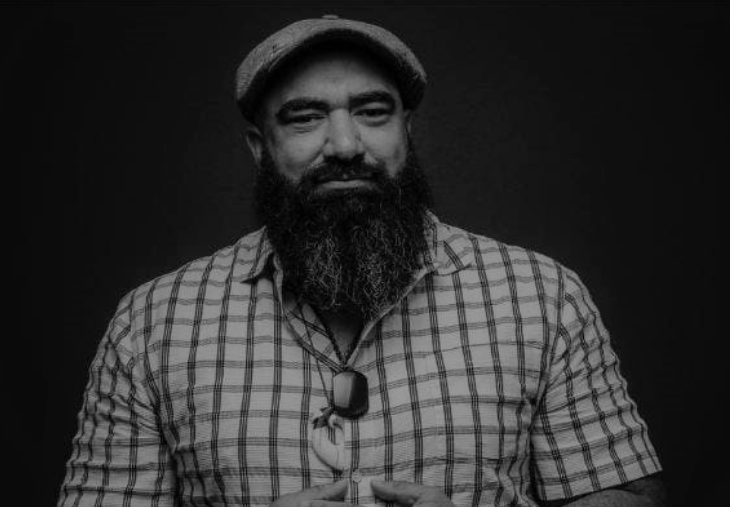
Rikki Solomon
Ngati Kahungunu and Ngati Kahu ki Whangaroa
Rikki is a well respected mātanga of the maramataka Māori and integrates this mātauranga in his practice as a funeral director.
Rikki completed He Waka Hiringa: Masters Degree in Applied Indigenous Knowledge from Te Wananga o Aotearoa under the tutelage of Dr. Te Rita Papesch and Dr. Hohepa Tamehana and is currently working on his Doctorate of Indigenous Development and Advancement at Te Whare Wananga o Awanuiārangi.
His focus is on Nga Kitenga o te Maramataka: Insights into the Maramamataka (Maori Moon Calendar) and its relation to Whakamomori (Suicide). He works with Turuki Healthcare, and is part of the Mahi atua movement which focuses on maori-centric approach to health and wellbeing
-

Dr Suneela Mehta
Dr Suneela Mehta is a Public Health Medicine Specialist and an Honorary Senior Research Fellow at the School of Population Health, Waipapa Taumata Rau (The University of Auckland). She is based with the Population Health Gain Directorate (a national team within Service Improvement and Innovation, Health New Zealand/Te Whatu Ora). The health of ethnic, migrant and former refugee communities in Aotearoa New Zealand is a key area of focus in her work, and she has led or been involved in numerous analyses and studies over the past 15 years that have examined ethnic health needs and outcomes. She is a South Asian advisor and member of the Data Sovereignty Group for the Health Research Council-funded VAREANZ vascular-metabolic research programme, a member of the Centre for Asian and Ethnic Minority Health Research and Evaluation (CAHRE) based at The University of Auckland and a Strategic Group member for the Ethnic Health Collective.
-
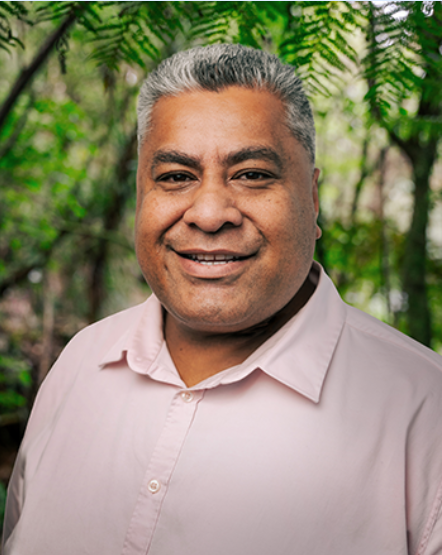
Dr Tagaloa Junior Ulu
Dr Tagaloa Junior Ulu is Samoan and is passionate about equitable outcomes for Pacific people. He brings strong Pacific cultural views, insights, and knowledge of other Pacific Island countries through personal and professional vā (relationships). His matai title Tagaloa is from his father’s village of Toamua.
Junior has broad professional experience in both health and development and is currently the Director Pacific Health for Manatū Hauora. Previous roles have included working as the Interim Pacific Lead for the Central Region of Te Whatu Ora – Health New Zealand, Director Pacific People’s Health at Hutt Valley and Capital & Coast DHBs, Director Pacific Development (Pasifika Medical Association – PMA) and roles at the Ministry of Foreign Affairs and Trade, Volunteer Service Abroad (VSA), New Zealand High Commission (Samoa) and initially as a secondary school teacher.
